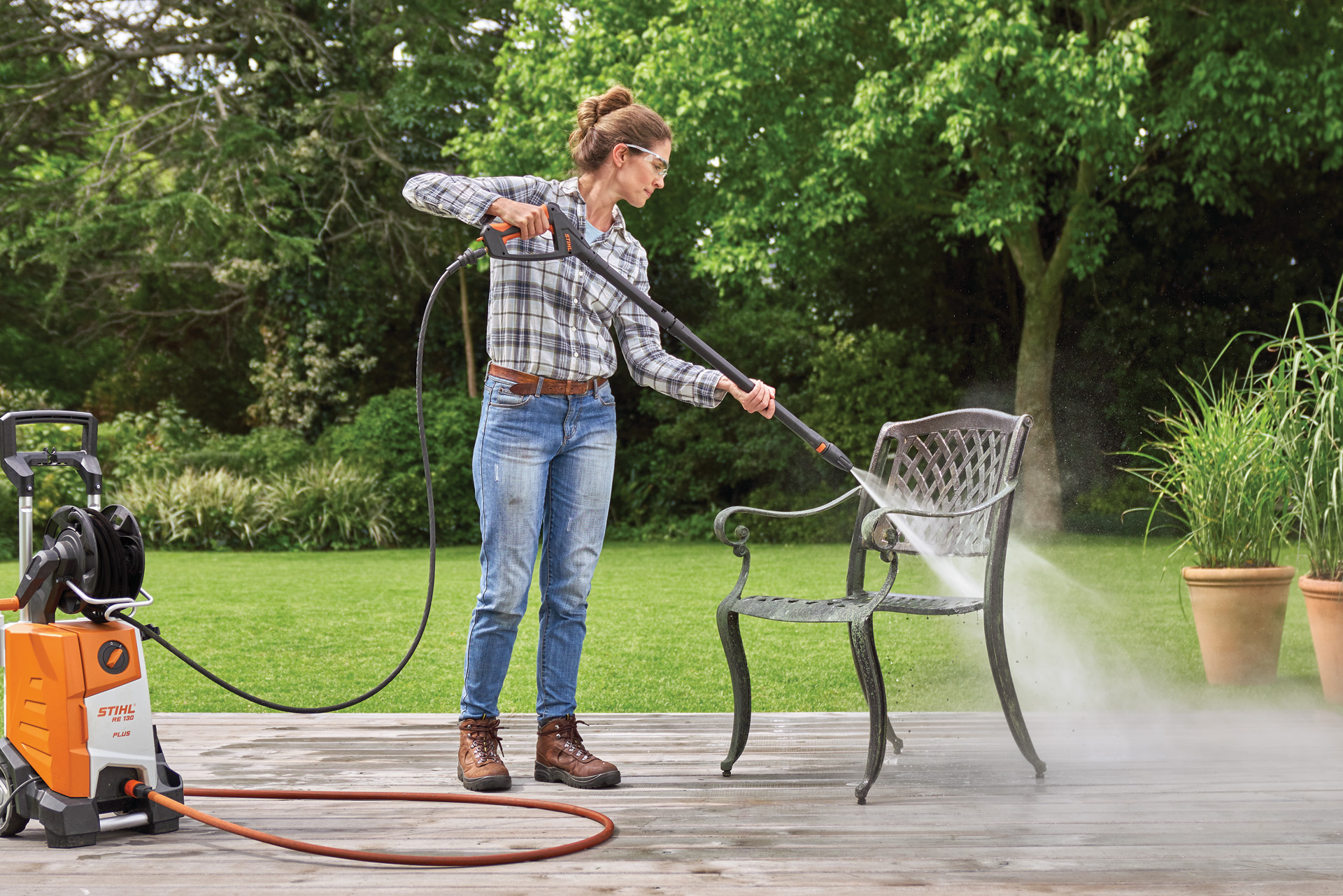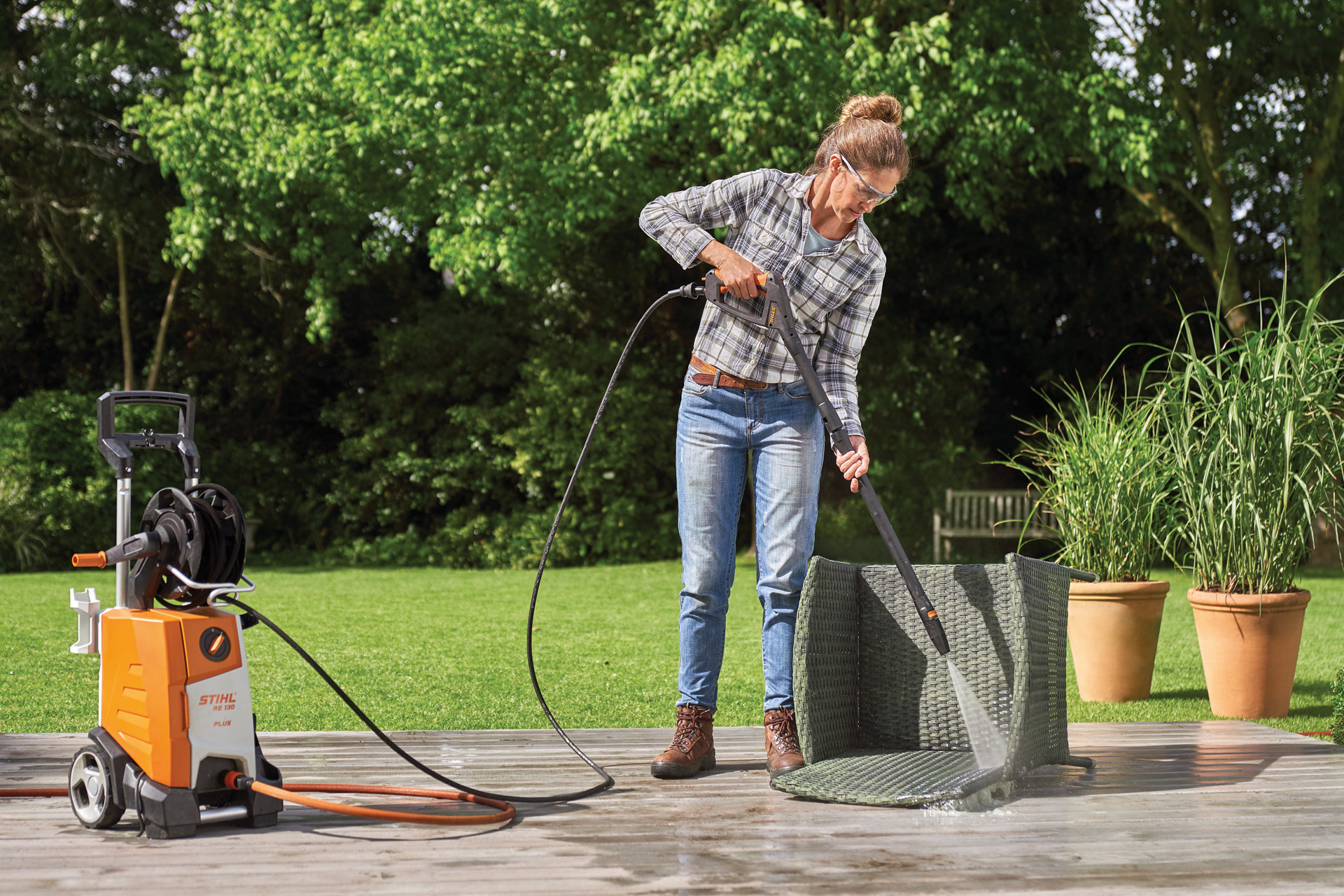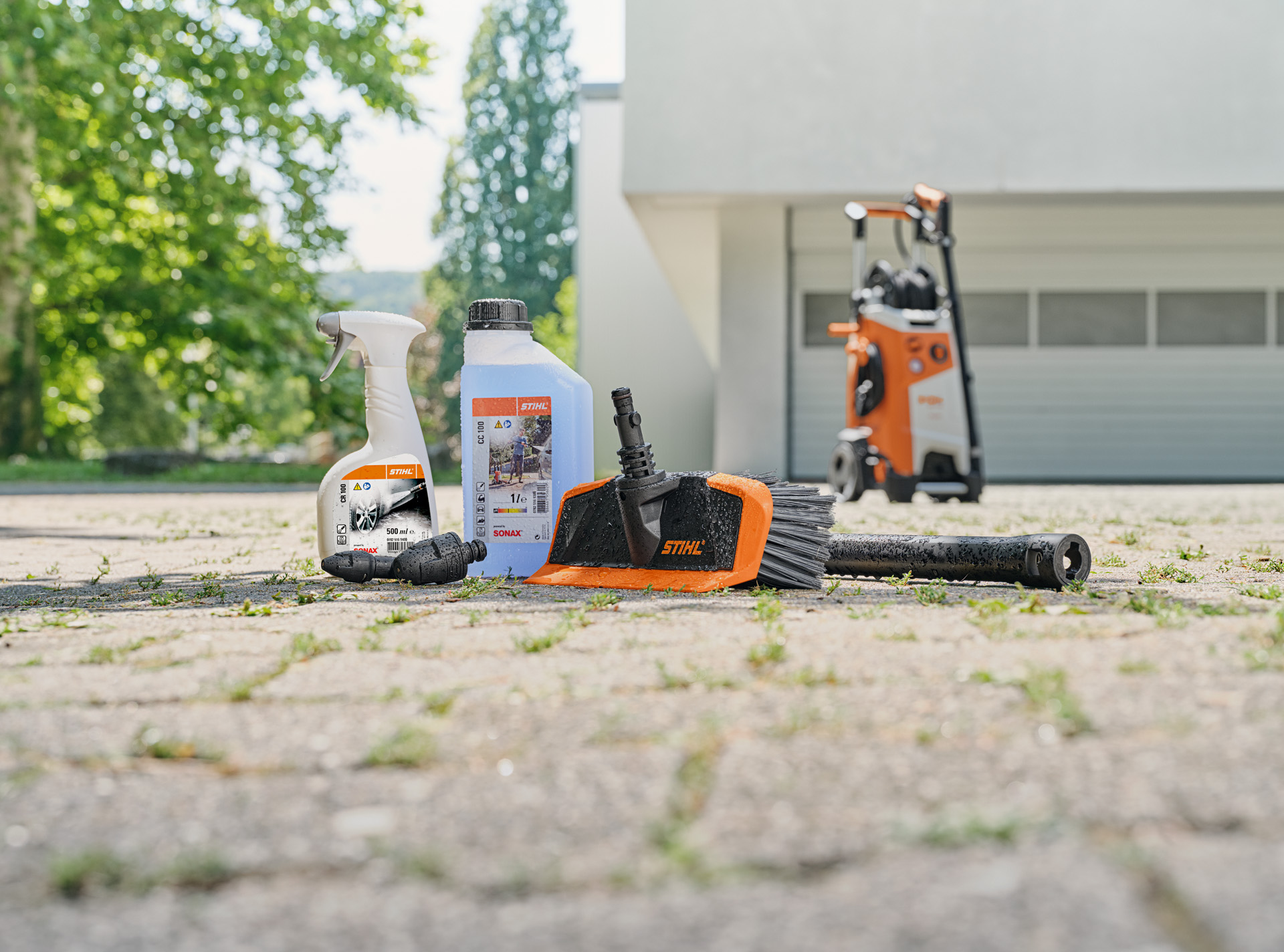How to clean wooden garden furniture
There are a few principles to remember when cleaning wooden garden furniture. Our guide explains the right care.
13.07.2023

Garden furniture made from wood – a timeless choice
As the outdoor season approaches, remember that it's not just your garden that needs attention - your garden furniture needs it too. If you’ve chosen furniture made from wood, you've chosen a beautiful and timeless material that can give you many years of handsome service – with the right care. As with all natural materials, there are a few things you should be aware of when it comes to getting wooden furniture clean.
How to clean wooden garden furniture: using household products

The right way to clean wooden garden furniture varies depending on the exact type of wood. The natural properties of hardwoods such as teak, eucalyptus and robinia make them great choices for low-maintenance outdoor furniture, as they are weatherproof, do not turn grey as quickly as other woods and can handle fairly robust cleaning. This means that, with a few precautions, you can clean these types of wood with a high-pressure cleaner such as the STIHL RE 100.
Softer wood types are not suitable for cleaning with high-pressure jets. But you can effectively clean delicate wooden garden furniture using simple solutions: dirt and marks on wood are easily removed with a gentle soap solution. Apply this cleaning agent to the surface of the wood with a soft brush, working in the direction of the grain. Use clean water to rinse the soap from the wood, then wipe the furniture with a soft cotton cloth. Leave it to dry completely. Alternatively, if you have an appropriate wash brush, you can use your high-pressure cleaner even on delicate wood surfaces, for a thoroughly clean result.
If you have painted wood furniture, you will also need to take extra care when you clean it, though you can do so by hand or with a high-pressure cleaner.

Please note that we do not recommend using soda crystals or vinegar to clean your delicate wood furniture, as these are much more aggressive than soapy water. Lacquered wooden garden furniture also needs rather careful treatment when it comes to cleaning. However, it can be cleaned both by hand and carefully with a high-pressure cleaner. With the right washing brush, even delicate wooden surfaces can be cleaned thoroughly and effortlessly with the high-pressure cleaner.
How to clean wooden garden furniture: with a high-pressure cleaner
The easiest way to get your wooden furniture thoroughly clean is to use a pressure washer. We don't recommend that you direct high-pressure water jets directly at your wooden furniture; instead use the STIHL rotating wash brush to clean wood surfaces. This allows powerful yet gentle cleaning and efficient water use. If you can’t get the job done with the rotating wash brush alone, the fan jet nozzle can also be used – but make sure to keep the pressure setting low. This is particularly important if you are using it to clean painted wood furniture, as excessively high pressure can cause the paint to crack and then chip at a later stage. For an extra boost, you can also apply a cleaning agent such as CS 100 universal cleaner when cleaning garden furniture made from wood.

How often should I clean my wooden garden furniture?
We recommend at least three times a year, with the first cleaning at the start of the warmer seasons, the second in summer, and then a final clean before you put your wood furniture into storage for winter. Bear in mind that you should only clean wood furniture when night-time temperatures are above freezing – this is because its needs to dry out completely after you clean it, and any ice crystals that form at low temperatures will damage the wood.
The most important thing to remember when cleaning your wooden garden furniture is that no matter what wood it is made from, you should never use aggressive cleaning methods, hard wire brushes or rough sponges to clean it. These can cause micro-damage to the surface, which makes it easier for dirt to be deposited on the wood. If you combine gentle cleaning with some regular maintenance steps, your garden furniture can be enjoyed for a long time to come. For oiled and varnished wood furniture, we recommend an annual reapplication of the finish. Painted wooden garden furniture should be examined regularly for chips and touched-up or repainted when necessary.

Storing wooden garden furniture
Even the most durable wooden furniture should not be left outdoors unprotected over winter because the exposure accelerates greying of the wood, and causes damage to paint and other surface finishes. The best thing to do is clean your wood furniture at the end of the season, let it dry thoroughly and then put it away in a dry location. If you don’t have the space to store your wooden garden furniture indoors, you should cover it well with tarpaulins after cleaning and drying it.
Summary: how to clean wooden garden furniture
- Wooden garden furniture can be cleaned by hand using household products or with a pressure washer.
- When cleaning wood surfaces on garden furniture, be aware of the type of wood.
- Softer, more delicate woods should generally be cleaned by hand, though you can use a pressure washer to clean more robust wood.
- You should only clean wooden garden furniture when temperatures remain above freezing at night.
- It's best to clean your furniture at the beginning, in the middle and at the end of the gardening season, focusing on maintenance in between.
- You should store your wooden garden furniture in a sheltered location after the final cleaning of the season.




